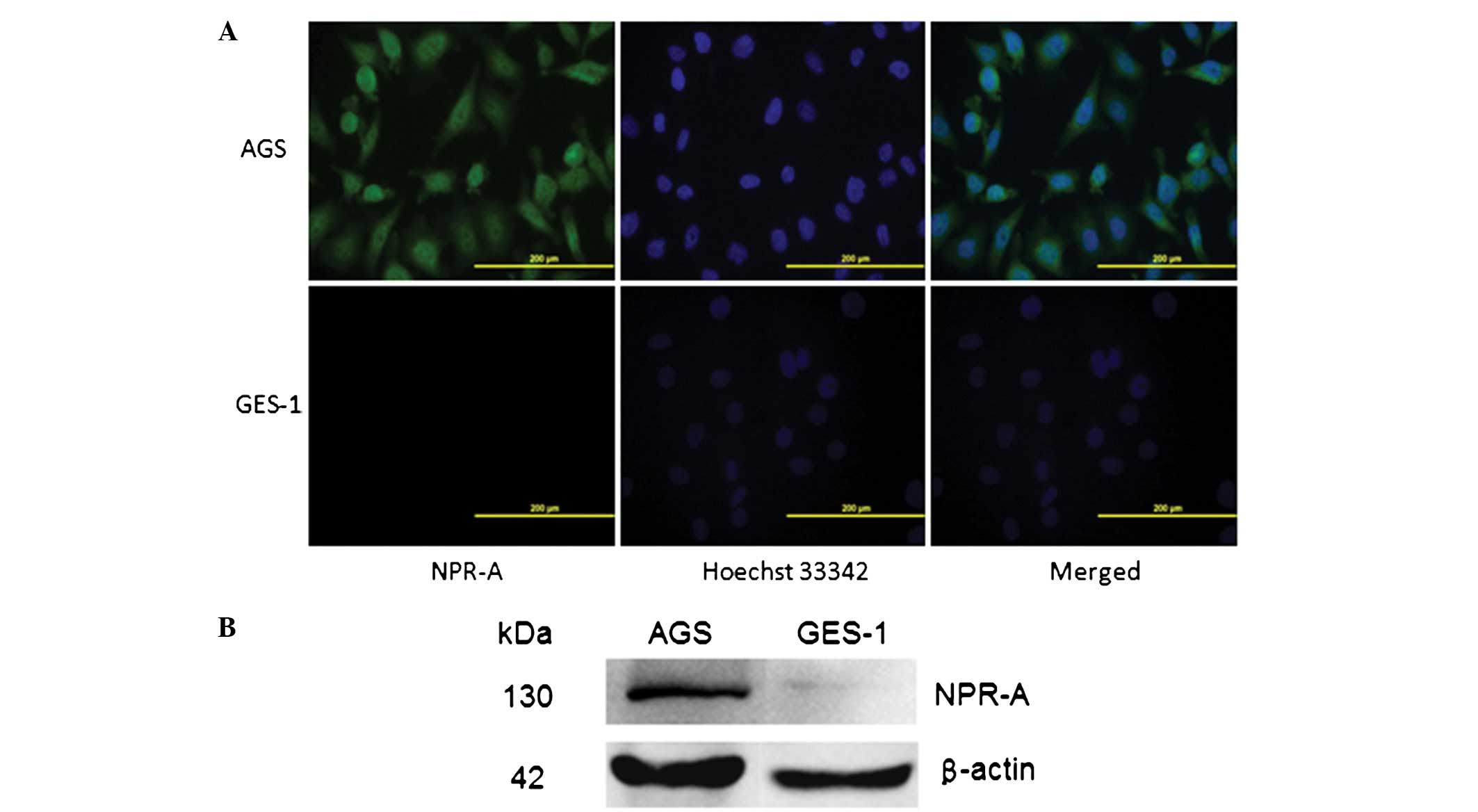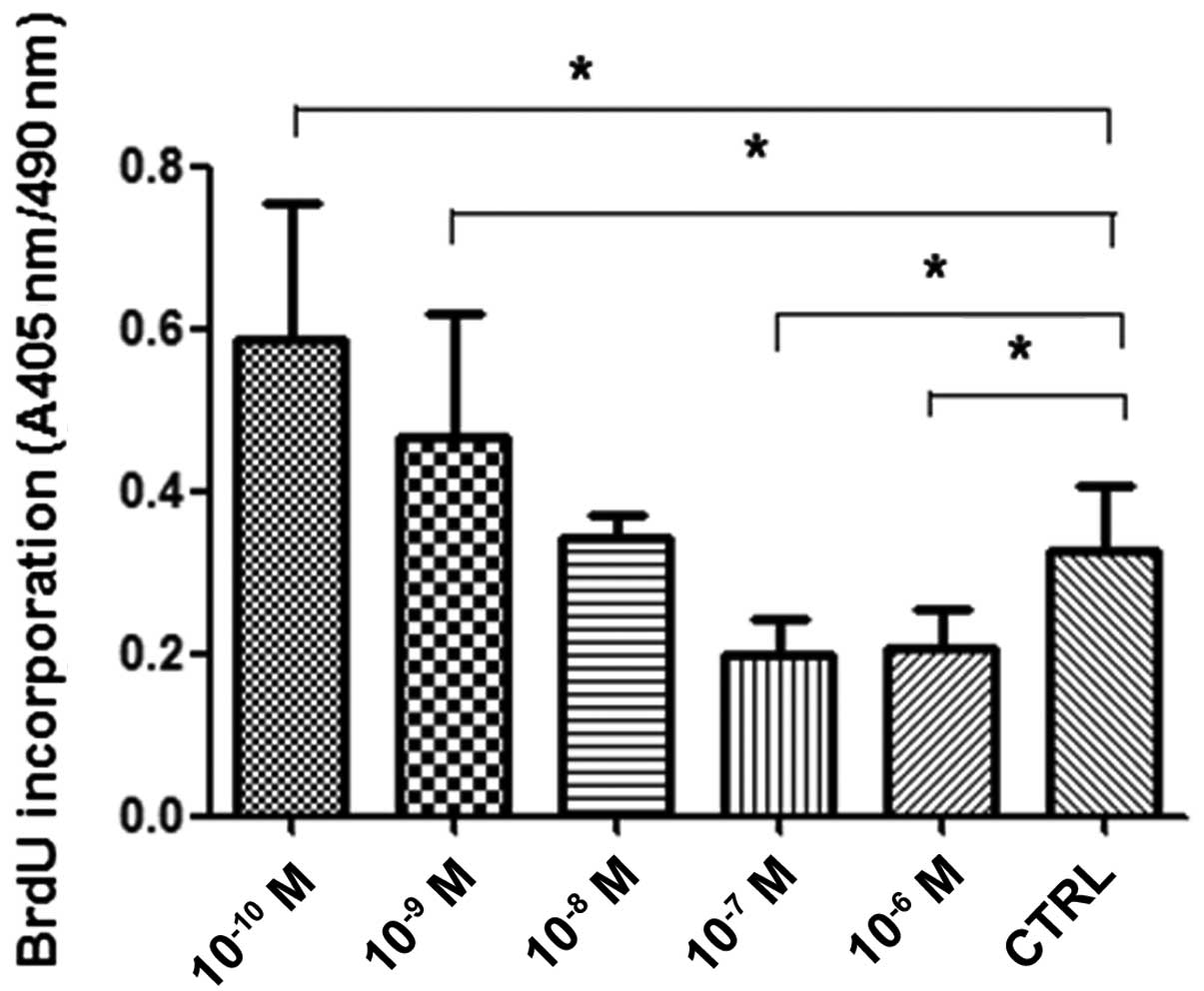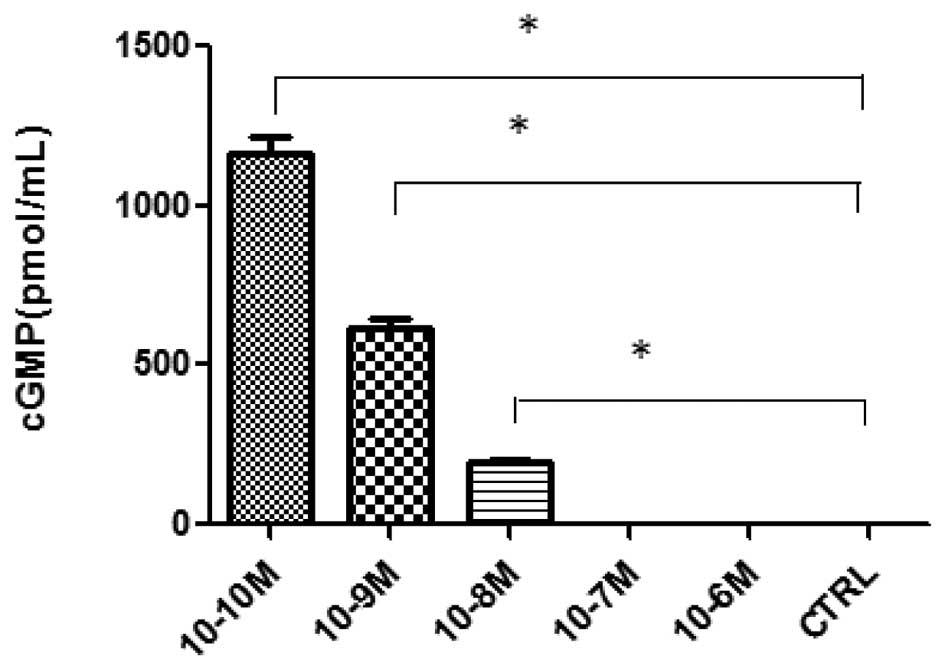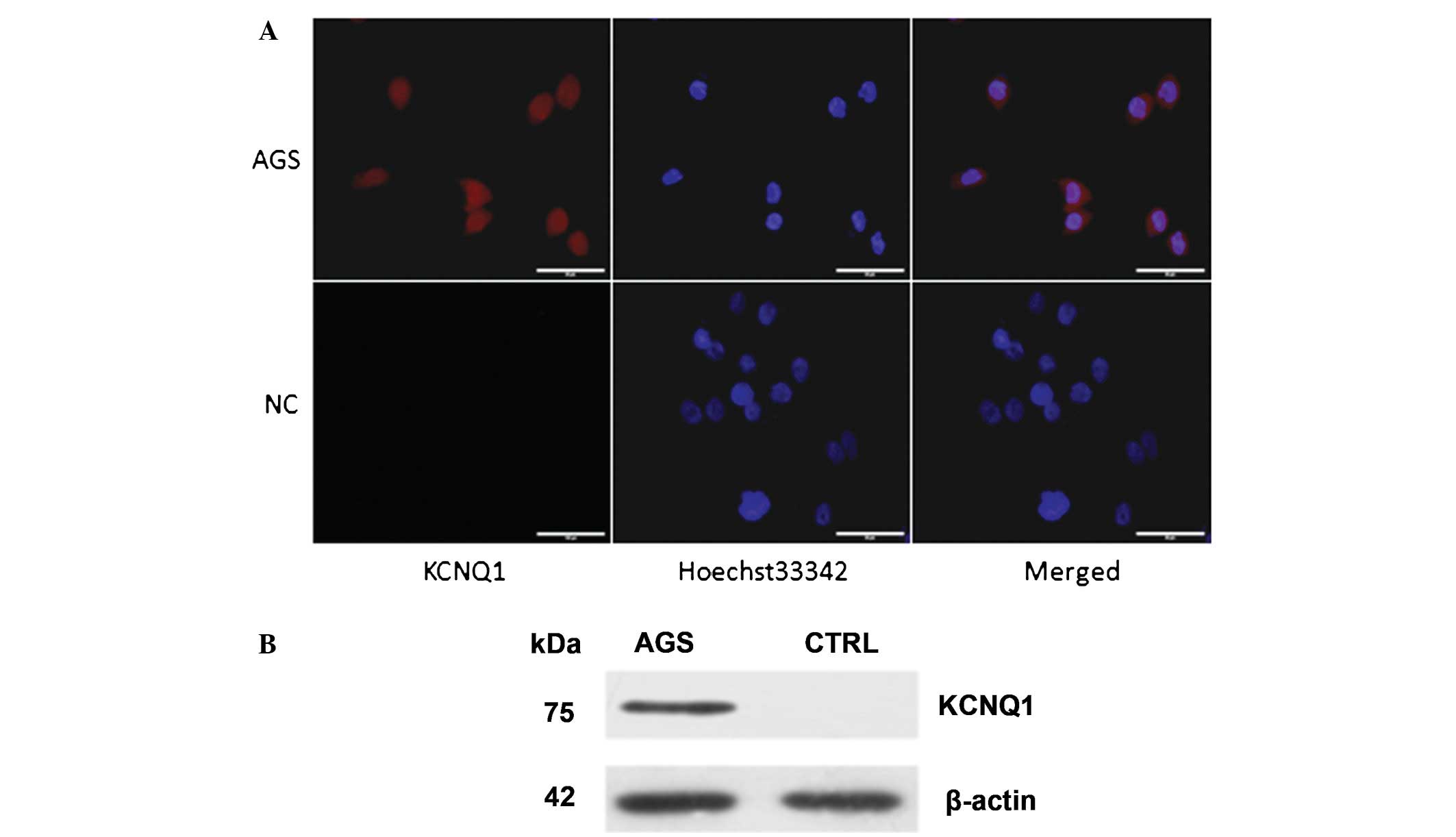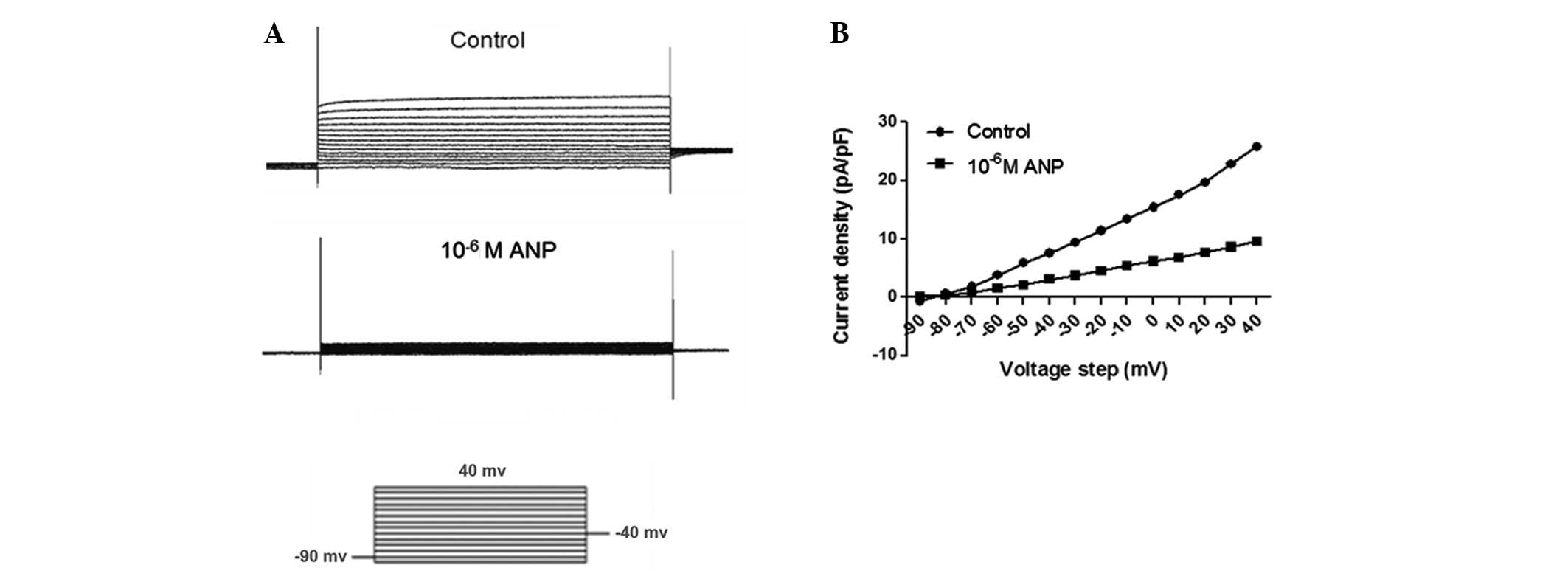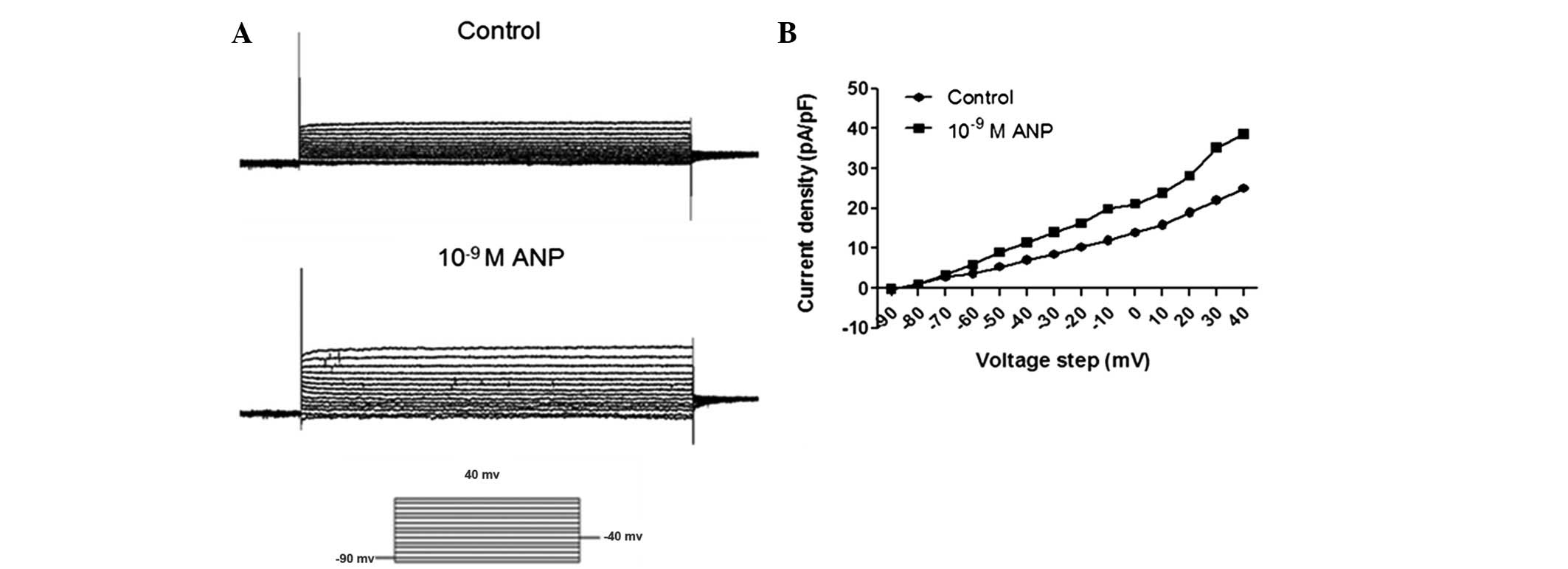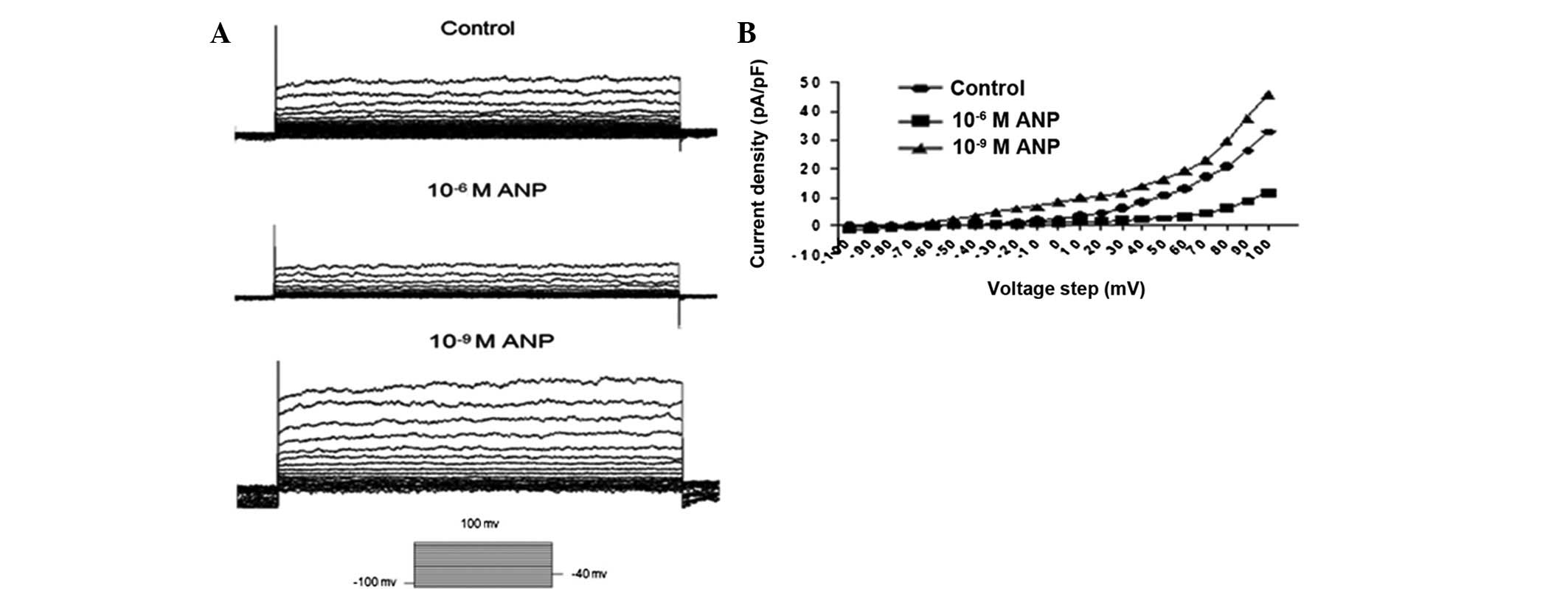|
1.
|
Pedram A, Razandi M, Kehrl J and Levin ER:
Natriuretic peptides inhibit G protein activation. Mediation
through cross-talk between cyclic GMP-dependent protein kinase and
regulators of G protein-signaling proteins J Biol Chem.
275:7365–7372. 2000.PubMed/NCBI
|
|
2.
|
Silberbach M and Roberts CT Jr:
Natriuretic peptide signalling: molecular and cellular pathways to
growth regulation. Cell Signal. 13:221–231. 2001. View Article : Google Scholar : PubMed/NCBI
|
|
3.
|
Fiscus RR: Involvement of cyclic GMP and
protein kinase G in the regulation of apoptosis and survival in
neural cells. Neurosignals. 11:175–190. 2002. View Article : Google Scholar : PubMed/NCBI
|
|
4.
|
Kong X, Wang X, Xu W, et al: Natriuretic
peptide receptor a as a novel anticancer target. Cancer Res.
68:249–256. 2008. View Article : Google Scholar : PubMed/NCBI
|
|
5.
|
Abdelalim EM and Tooyama I: NPR-A
regulates self-renewal and pluripotency of embryonic stem cells.
Cell Death Dis. 2:e1272011. View Article : Google Scholar : PubMed/NCBI
|
|
6.
|
Zhanping W, Xiaoyu P, Na C, Shenglan W and
Bo W: Voltage-gated K+ channels are associated with cell
proliferation and cell cycle of ovarian cancer cell. Gynecol Oncol.
104:455–460. 2007.
|
|
7.
|
Spitzner M, Ousingsawat J, Scheidt K,
Kunzelmann K and Schreiber R: Voltage-gated K+ channels support
proliferation of colonic carcinoma cells. FASEB J. 21:35–44.
2007.
|
|
8.
|
Lan M, Shi Y, Han Z, et al: Expression of
delayed rectifier potassium channels and their possible roles in
proliferation of human gastric cancer cells. Cancer Biol Ther.
4:1342–1347. 2005. View Article : Google Scholar : PubMed/NCBI
|
|
9.
|
Vesely DL: Atrial natriuretic peptides:
anticancer agents. J Investig Med. 53:360–365. 2005. View Article : Google Scholar : PubMed/NCBI
|
|
10.
|
Lelièvre V, Pineau N, Hu Z, et al:
Proliferative actions of natriuretic peptides on neuroblastoma
cells. Involvement of guanylyl cyclase and non-guanylyl cyclase
pathways. J Biol Chem. 276:43668–43676. 2001.PubMed/NCBI
|
|
11.
|
Kato T, Muraski J, Chen Y, et al: Atrial
natriuretic peptide promotes cardiomyocyte survival by
cGMP-dependent nuclear accumulation of zyxin and Akt. J Clin
Invest. 115:2716–2730. 2005. View
Article : Google Scholar : PubMed/NCBI
|
|
12.
|
Cottart CH, Nivet-Antoine V, Do L, et al:
Hepatic cytoprotection by nitric oxide and the cGMP pathway after
ischaemia-reperfusion in the rat. Nitric Oxide. 9:57–63. 2003.
View Article : Google Scholar : PubMed/NCBI
|
|
13.
|
Fiscus RR, Tu AW and Chew SB: Natriuretic
peptides inhibit apoptosis and prolong the survival of
serum-deprived PC12 cells. Neuroreport. 12:185–189. 2001.
View Article : Google Scholar : PubMed/NCBI
|
|
14.
|
Matsumura T, Kugiyama K, Sugiyama S, et
al: Neutral endopeptidase 24.11 in neutrophils modulates protective
effects of natriuretic peptides against neutrophils-induced
endothelial cytotoxity. J Clin Invest. 97:2192–2203. 1996.
View Article : Google Scholar
|
|
15.
|
Suenobu N, Shichiri M, Iwashina M, Marumo
F and Hirata Y: Natriuretic peptides and nitric oxide induce
endothelial apoptosis via a cGMP-dependent mechanism. Arterioscler
Thromb Vasc Biol. 19:140–146. 1999. View Article : Google Scholar : PubMed/NCBI
|
|
16.
|
Han B, Fixler R, Beeri R, Wang Y, Bachrach
U and Hasin Y: The opposing effects of endothelin-1 and C-type
natriuretic peptide on apoptosis of neonatal rat cardiac myocytes.
Eur J Pharmacol. 474:15–20. 2003. View Article : Google Scholar : PubMed/NCBI
|
|
17.
|
Bader B, Butt E, Palmetshofer A, et al: A
cGMP-dependent protein kinase assay for high throughput screening
based on time-resolved fluorescence resonance energy transfer. J
Biomol Screen. 6:255–264. 2001. View Article : Google Scholar
|
|
18.
|
Elso CM, Lu X, Culiat CT, et al:
Heightened susceptibility to chronic gastritis, hyperplasia and
metaplasia in Kcnq1 mutant mice. Hum Mol Genet. 13:2813–2821. 2004.
View Article : Google Scholar : PubMed/NCBI
|
|
19.
|
Shao XD, Wu KC, Hao ZM, Hong L, Zhang J
and Fan DM: The potent inhibitory effects of cisapride, a specific
blocker for human ether-a-go-go-related gene (HERG) channel, on
gastric cancer cells. Cancer Biol Ther. 4:295–301. 2005. View Article : Google Scholar
|
|
20.
|
Shao XD, Wu KC, Guo XZ, Xie MJ, Zhang J
and Fan DM: Expression and significance of HERG protein in gastric
cancer. Cancer Biol Ther. 7:45–50. 2008. View Article : Google Scholar : PubMed/NCBI
|
|
21.
|
Ding XW, Yang WB, Gao S, et al: Prognostic
significance of hERG1 expression in gastric cancer. Dig Dis Sci.
55:1004–1010. 2010. View Article : Google Scholar : PubMed/NCBI
|
|
22.
|
Zhang R, Tian P, Chi Q, et al: Human
ether-à-go-go-related gene expression is essential for cisplatin to
induce apoptosis in human gastric cancer. Oncol Rep. 27:433–440.
2012.
|
|
23.
|
Han Y, Shi Y, Han Z, Sun L and Fan D:
Detection of potassium currents and regulation of multidrug
resistance by potassium channels in human gastric cancer cells.
Cell Biol Int. 31:741–747. 2007. View Article : Google Scholar : PubMed/NCBI
|
|
24.
|
Yanglin P, Lina Z, Zhiguo L, et al: KCNE2,
a down-regulated gene identified by in silico analysis, suppressed
proliferation of gastric cancer cells. Cancer Lett. 246:129–138.
2007. View Article : Google Scholar : PubMed/NCBI
|
|
25.
|
Roepke TK, Purtell K, King EC, La Perle
KM, Lerner DJ and Abbott GW: Targeted deletion of Kcne2 causes
gastritis cystica profunda and gastric neoplasia. PLoS One.
5:e114512010. View Article : Google Scholar : PubMed/NCBI
|
|
26.
|
Ding XW, Luo HS, Jin X, Yan JJ and Ai YW:
Aberrant expression of Eag1 potassium channels in gastric cancer
patients and cell lines. Med Oncol. 24:345–350. 2007. View Article : Google Scholar : PubMed/NCBI
|
|
27.
|
Qian X, Li J, Ding J, Wang Z, Duan L and
Hu G: Glibenclamide exerts an antitumor activity through reactive
oxygen species-c-jun NH2-terminal kinase pathway in human gastric
cancer cell line MGC-803. Biochem Pharmacol. 76:1705–1715. 2008.
View Article : Google Scholar
|
|
28.
|
Lerche C, Bruhova I, Lerche H, et al:
Chromanol 293B binding in KCNQ1 (Kv7.1) channels involves
electrostatic interactions with a potassium ion in the selectivity
filter. Mol Pharmacol. 71:1503–1511. 2007. View Article : Google Scholar : PubMed/NCBI
|
|
29.
|
Wang X, Raulji P, Mohapatra SS, et al:
Natriuretic peptide receptor a as a novel target for prostate
cancer. Mol Cancer. 10:562011. View Article : Google Scholar : PubMed/NCBI
|















